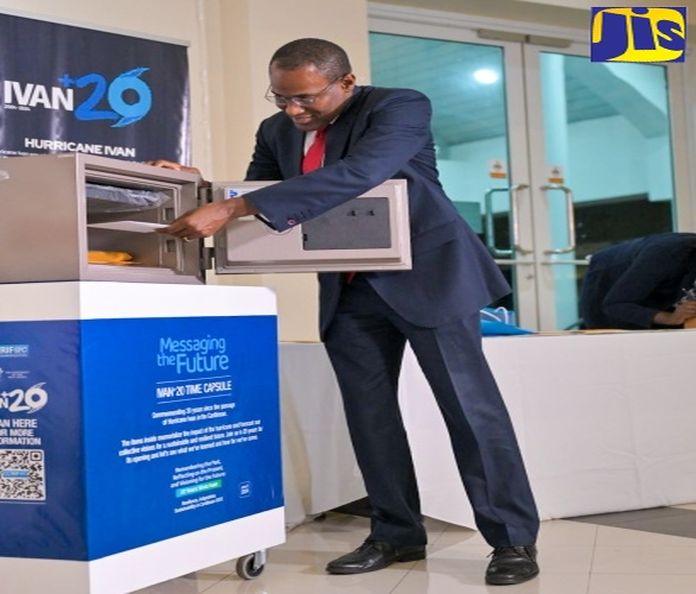By Judana Murphy
KINGSTON, Jamaica (JIS) – Jamaica’s approach towards managing disaster risks has changed since Hurricane Ivan in 2004, says minister of finance and the public service, Dr Nigel Clarke.
“The approach is no longer an ex-post approach where you wait on the disaster and then you cobble together the resources that you need. The approach today, decidedly, is one where we have layers of financial instruments designed to deliver fiscal resources for the emergency costs,” Dr Clarke said, addressing the Ivan+20 Resilience Dialogue and Time Capsule Event, under the theme ‘Reflecting on 20 years Post Hurricane Ivan… and Our Vision for a Resilient Caribbean 2044’.
The event was held on Wednesday, June 5 at the University of the West Indies Regional Headquarters in St Andrew.
In 2004, hurricane Ivan devastated the Cayman Islands and Grenada, resulting in economic losses totalling close to 200 percent of their annual gross domestic product (GDP). Jamaica and six other Caribbean countries were also adversely impacted, with regional losses amounting to more than US$6 billion.
“ June 4, in parliament, we passed the law that brings into effect the National Natural Disaster Fund, which is a fund to which the Government will be mandated to save each year,” Dr Clarke informed. In the first year, the government can save up to $1 billion, while in the second year and thereafter, at least $400 million.
Dr Clarke explained that the Fund’s purpose is to complement the other instruments – a $40-billion credit contingent claim with the Inter-American Development Bank (IDB) and parametric risk insurance with the Caribbean Catastrophe Risk Insurance Facility (CCRIF).
“Financially, at least, what has changed is that we are putting the resources together before the event, so that resources are available. We don’t have to scramble, cap in hand. We will always appreciate donations, but we don’t have to scramble and be totally and wholly dependent on the generosity of others,” Dr Clarke stated.
The Ivan+20 Resilience Dialogue was designed to reflect on experiences and lessons learned from the passage of Hurricane Ivan and share best practices and strategic approaches for advancing the resilience agenda of Jamaica and the Caribbean.
Invited guests placed in the capsule items that paint a picture of the period before or during hurricane Ivan, the present, and the Caribbean’s hopes for the future. The time capsule will be reopened in 20 years – in 2044.





